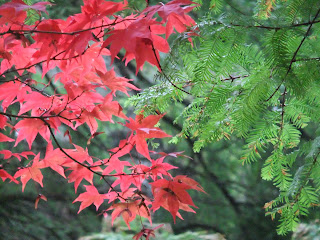The 19th August is International Orang-utan Day.
We all know, by now, that palm oil is in intensively farmed monocrop that is grown in the tropics. There are lots of people out there on social media calling for a boycott of this crop, as it rapidly increases in production in Borneo and Sumatra, the last refuges of orang-utans. Opinions are split, and the arguments on Twitter are heated and emotive. The only thing that seems certain is that it is a complex problem, without an easy solution. I've spent a lot of time reading the recent scientific papers, pondering, chatting to my colleagues and friends in the industry, and perusing the websites of organisations I trust. And the following is where I stand on the issue at the moment.
I think the best course of action for the consumer is to consider switching your products to those which include sustainable palm oil. I know some of you reading this would prefer to see a palm oil boycott, but the reality is that there is global demand for oil which will be met one way or another by the industry. Whilst we're waiting for the entire world to stop using oil crops(!), we might as well push to make what's currently in use as sustainable as possible.
As all of the alternative edible oilseed crops are less productive, a boycott would simply see a shift to an alternative which requires more land to produce.
The RSPO seem to be addressing several of the problems that have previously been highlighted with the initiative (I hear the phrases "sustainable palm oil doesn't mean anything" and "there are lots of problems with the RSPO" banded around in my line of work sometimes). It is also clear to me that a demand for sustainable palm oil (and I appreciate that a monoculture of any kind cannot be 100% sustainable) increases the motivation to improve the industry, which a boycott does not. Supporting initiatives such as the RSPO, whilst subjecting them to a healthy level of questioning and constructive criticism, pushes organisations to work together to find solutions that protect what we can whilst meeting the global demands for food and fuel.
I think it's great to make consumer choices that involve fewer processed products (which often contain oils such as palm), and choose locally sourced products for the good of the environment, and I'm in no way criticising anyone who is managing to sustain a palm-oil-free lifestyle, good on you! But I'm also supportive of any efforts to minimise the negative impacts of worldwide consumption on the environment, and aware that many of the alternative oils used in palm oil free products (and I'm talking here about something that contains an equivalent oil, not something like an apple!) are actually worse for our forests.





